Japan and China have massively different views on EVs. I think my money is now on Japan | Opinion
It’s not a question that gets raised a lot in high-school history classes, but perhaps it should, and it’s certainly one I ponder whenever I visit The Only Country in the World Where Everything Just Works – would the world be a better place if Japan had won World War II?
What seems quite likely is that we wouldn’t be driving electric vehicles, which account for just two per cent of new car sales in Japan.
That’s partly because the Japanese don’t seem to believe in them as the answer to combating climate change, or anything else – and partly because they would have come with a better solution.
READ MORE: EV fightback! Can the 2026 Honda-Nissan-Mitsubishi merger finally get Japan competitive against Tesla and the Chinese?
READ MORE: You can forget a cheap Japanese electric car in Australia: Red-tape ends Mitsubishi’s dream of sub-$30K eK SUV
READ MORE: Electric HiLux incoming! New Toyota HiLux REVO heads for production in Thailand as Japanese giant beats Ford Ranger to BEV workhorse
Yes, I know it’s controversial and that Japanese is a difficult language for us all to be speaking (it’s also the fastest in the world, in terms of syllables per second, probably because they don’t want to waste time), but I’m currently visiting, along with several billion other tourists, and it’s hard to argue that we wouldn’t all be better off, overall, if they were in charge.
Our toilet seats would be warm, our bottoms washed, the food would be immeasurably better (honestly, I saw an Aussie bar – the Coolabah – in Okinawa and was overcome with shame at its offerings of meat pies and sausage rolls), the trains would run on time (over an entire year, including natural disasters, the Shinkanzens, or Bullet Trains, averaged a lateness of 12 seconds in the 1990s, it’s now up to 1 minute 20 seconds, but that’s across a whole year), football fans would clean the stadium before they leave, crime would be near zero and you’d be able to buy beer for $2 while sitting in an owl cafe.
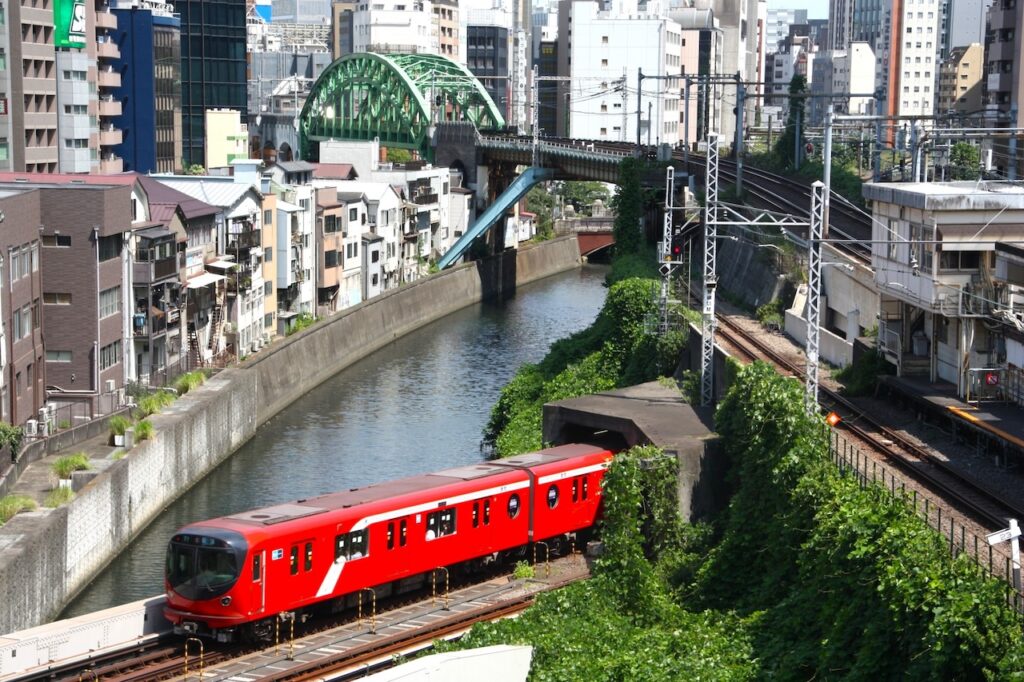
I find it slightly disconcerting that the Japanese have decided EVs are not the answer – sales cratered by a whopping 33 per cent in 2024 alone – because they tend to be so damn right about everything else (except for killing yourself out of shame when you lose a fight, that idea stinks).
But I think I’ve got my head around at least part of their thinking. I spent a few days in Tokyo with a view out my window of the impressive Sky Tree (the world’s tallest tower, until the Burj topped it), so quite central, and I would often look out and wonder at the fact that the two local streets I could see had no traffic on them at all.
One evening, because I live for danger, I went on a go-karting tour of the city, including the world’s busiest intersection at Shibuya (three million people cross it each year, or up to 3000 every time the lights change) and was warned that, as it was peak hour, we might be delayed by traffic.
And yet, in Sydney or Melbourne terms, there was hardly any delay at all. Everything just moved. The world’s biggest city by population has less congestion than Perth or Brisbane.
The answer, of course, is having fewer cars on the road. This is partly achieved by living like ants – with so little space you have to prove you can park a car before you’re allowed to buy one.
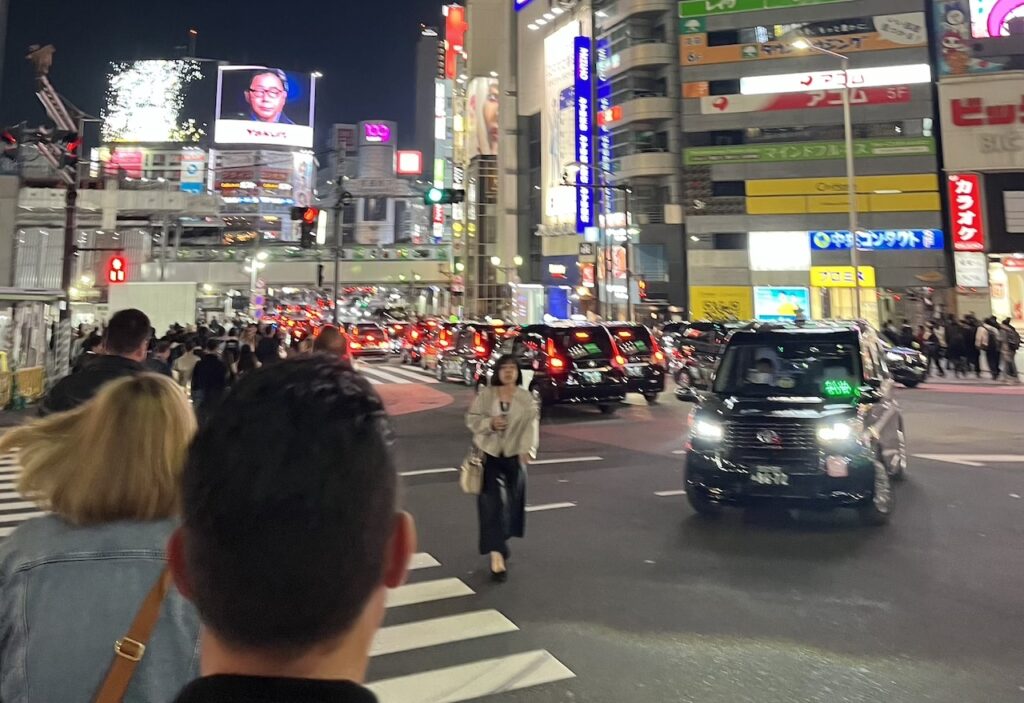
But more impressively, and logically, by having public transport systems that are so damn good you’d actually want to use them.
Because I can’t help myself, even on holiday, I also took note of just how few of the cars around us were electric – in 10 days here I have seen fewer than a handful of Teslas – particularly when I was on the go-kart, which meant I was mouth to mouth with all the car exhausts and ended up feeling like I’d smoked almost as much as the typical Japanese businessman does in an hour.
I also saw very, very few EV charging spots – again, space is an issue here – but I did nearly get run over a few times on back streets by hybrids, of which there seem to be huge quantities.
So I looked this up, and there are almost 13 million hybrid vehicles on the road in Japan. In 2024, HEVs made up 61 per cent of the new car market.
I’ve reported before how the Mazda Museum in Hiroshima has a very detailed plaque explaining why EVs don’t make sense, because, wheel-to-well, they use more energy than a conventional combustion car.
And you may have noticed yourself just how lackadaisical the approach of some Japanese companies – Toyota for one – has been to fully electrifying their offerings.
If everyone else, and China in particular, is right, then Japan as a country, and its car makers, are going to be left behind.
But as I write this sitting on one of the bullet trains that have been making the rest of the world look a bit slow and stupid since the 1960s, it’s genuinely hard to imagine that being the case.

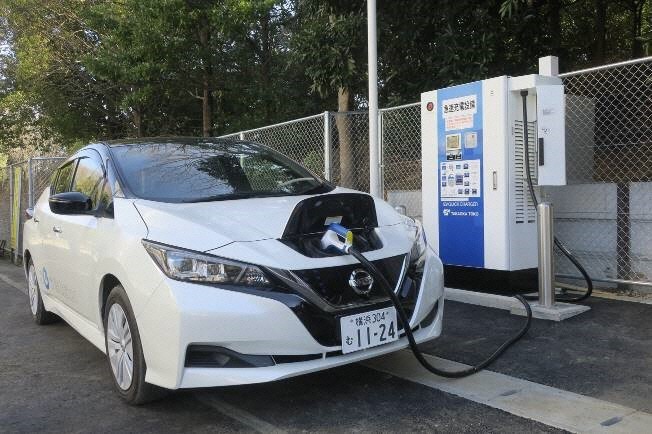
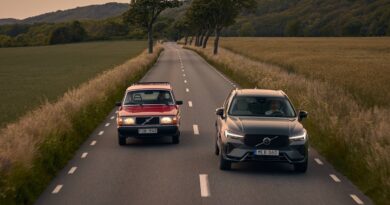
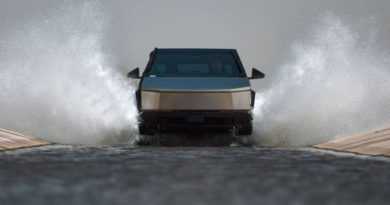
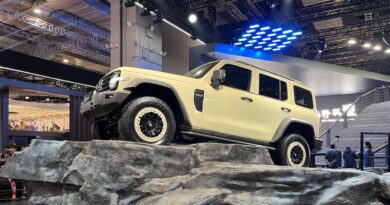
Well no, I give you
Toshiba
Sharp
Olympus
Sanyo
Nissan on life support and others.
Electrified vehicles, including hybrid and pure electric, are best for stop-and-go traffic. That’s why Japan was the first country to introduce the engine automatic start-stop system in the 1970s. Then, it iterated and becomes the hybrid system which we see in most Japanese cars. Japan’s hesitation in the BEV is not a surprise since they failed in the nuclear energy sector. The Fukushima nuclear disaster heavily impacted the energy transition in Japan, and potentially made the electricity no longer cheap and reliable. Unlike Australia, Japan has limited land space, meaning they have to carefully find spaces to build solar farms and other renewable energy alternatives when the trust of nuclear has gone. Japan used to be miles ahead of us in terms of clean energy, but now, these two countries are quite close.
I wonder if Fukushima might be an argument against another country deciding to go nuclear? Or Chernobyl.
Japan only bet on hydrogen because China controlled the lithium, Japan lost that bet.
And I give you the best-selling car brand in Australia, Toyota, which takes EVs about as seriously as I take people who say “I’ll leave climate change to the scientists”.
And I give you Toyota, which seems to take EVs about as seriously as I take politicians who won’t acknowledge that climate change is real.
Toyota as the leader of Japanese carmaker and industries dragged its feet on EV and instead put its bet on hydrogen. Hydrogen passenger cars never caught on and this had led to the whole country falling behind on BEV and PHEVs. Now they are in trouble first in China and now also in Southeast Asia and elsewhere
It would not have been better if Japan won World War Two because at that time the country was a war-crazy dictatorship. It’s very different now.
Good public transport is an argument against all cars, not an argument against EVs.
Surely breathing in the choking exhaust is evidence that the Japanese have got it wrong.
As the technology advances, EVs will conquer Japan.
This article is nonsense.
Agreed
Writer should visit the modern Chinese cities to write about the smokeless, noiseless and blue sky cities; unlike what they were like just a few years ago
Are you an agent of the Chinese Government, or do your eyes not work?
“Despite tremendous progress over the past few years, China is still the 13th most polluted country in the world. As a comparison, particulate pollution in Beijing is still 40 percent higher than the most polluted county in the United States (Plumas county in California).”
The skies there look like a guttering candle behind a dirty doona.
I’ll take the cheap solar power offered at off peak times and free home solar anytime than being beholden to current oil and future hydrogen conglomerates.
The future is electric, battery tech is in its infancy for EVs and homes.
I worked for a Japanese company for 29 years in Australia
There carefull way of doing things impressed me.
I would much rather invest in their technology.
Would the world be a better place if Nazi Germany had won World War II?
Because that’s how this article starts, only worse. But hey, the Germans make some pretty nice cars and their trains used to run on time too, that outweighs the genocide of 6 million people right?
This article is concerning and shows little knowledge or respect of the situation in Japan during WWII. To suggest that we may have been better off if Japan had won is awful and I am really surprised that EV Central have let it through their review process.
There are several other errors too, the wheel-to-well calculations have been described in peer reviewed papers and clearly demonstrate that BEVs are lower energy and emissions, particularly as electricity is produced from renewable sources.
What is correct in Japan is that small is beautiful and they really like small (short) cars and vans. You could fit 20 in the space of 10 large SUVs!
With all the Japan gushing (because you know western countries need to woo them into our orbit so we can use them against big bad China) and anti China hysteria, you would think it was China that bombed attacked pearl harbour, Darwin, tortured, murdered and beheaded our diggers, raped and murdered our nurses, raped and pillaged most of Asia. A lot of us still know and remember this history.
What a disgraceful article, you’ve obviously never read the history of the Japanese treatment of non Japanese people and not everyone wants hot dunny seats, spotlessly clean and anatomically correct buildings etc or eating sanitised food all the time. If you don’t like Australia as it is rather than try to embarrass the average Aussie on our lifestyle and food choices try packing up and moving to Japan.
I would, but they’re not heavily into immigration. And I still think Australia is the best country on Earth, I just don’t believe its un-Australian to say it could be better.
Wheel to well, ev’s are carbon neutral in less than two years compared to ice even when factoring coal into their manufacture.
Seppuku please.
What a disgraceful article, you’ve obviously never read the history of the Japanese treatment of non Japanese people and not everyone wants hot dunny seats, spotlessly clean and anatomically correct buildings etc or eating sanitised food all the time. If you don’t like Australia as it is rather than try to embarrass the average Aussie on our lifestyle and food choices try packing up and moving to Japan.
Your article is disgusting, would the world be better if Japan had won World War 2? That in itself says, okay let’s overlook all the atrocities that happened, rape of Nanking, comfort women throughout Asia, forced slavery, just to name a few.
Post-war Japan’s success emerged under U.S.-led democratization and pacifist reforms. A victorious Imperial Japan would lack these conditions, potentially remaining militaristic and oppressive.
You fetishizes Japan as a utopia of “warm toilet seats,” punctual trains, and low crime, ignoring systemic issues like workplace stress, aging demographics, and gender inequality. This “orientalist” lens oversimplifies Japanese society.
Claims about EVs being dismissed due to Japanese superiority (“they’re right about everything”) lack nuance. Japan’s hybrid focus stems from pragmatism (limited charging space, energy mix), not innate cultural genius.
You cited Mazda’s anti-EV plaque and Toyota’s hesitancy but neglect Japan’s investments in hydrogen tech and geopolitical resource constraints (e.g., rare earth metals) and ignore broader trends. Japan’s auto industry prioritizes hybrids and hydrogen, but this doesn’t invalidate global EV adoption.
Stick to posting articles as a journalist and not opinions of a first time tourist who thinks driving go-carts in traffic is “fun”, and then post it from a bullet train, obviously you haven’t travelled much.
Next you’ll be romantising Indonesia Bali and their slow uptake of EV’s due to their laid back culture of beaches and beer.
Evcentral has been taken off my feed thanks to this article.
Stephen, I like your observations about how culture affects so many decisions and aspects of daily life, and how this has led to Japan’s current EV position. We’ve many interesting and unique cultures in the world. And some will even be able to adapt to the march of history… and others maybe won’t do so well.
Time will tell.
You are probably lucky that most of the people who suffered under Japanese rule are dead because you would probably get a lot of blowback for such a ridiculous musing.
We may have eventually gotten warm toilet seats but with a greatly reduced population.
Our teenage girls – the younger the better – would have been forced into brothels for Japanese soldiers and when they reached their USE BY date, which would happen rather quickly, they would be tied to a tree and used for bayonet practice to blood new recruits to their army.
The men would be forced into labour camps and, like the young girls, they would quickly cease to be useful and die on the blade of a Samurai sword.
We spend a lot of time decrying the Jewish holocaust but it paled in comparison to the brutality of Japanese domination as they murdered their way through Asia.
More reading and less typing.
I am humbled that you think I could actually be so ignorant.
Better to keep your mouth closed and be thought an idiot than to open your mouth and prove it.
You are as ignorant assumed and with an ego to match. Instead of trying to clap-back with smart ass replies, do some self-reflection. Disgusting.
Be careful not to clap back and type at the same time or you make stupid mistakes and make yourself look like the bigger idiot.
“You are as ignorant assumed”. Or is that a Zen Koan? But hey, you’re obviously the expert here.
“post it from a bullet train, obviously you haven’t travelled much.”
Not only are you entirely wrong about that, but you entirely lack a sense of humour. I don’t wish that Japan had killed millions of people to win the war, I’m using satire – look it up – to make a point about what a brilliant country it is. A country I’ve visited quite a bit for work, which I would have, if you think about the fact that I’m a motoring journalist. But thanks for your knee jerk reaction.
I know you are probably a petrol head but there’s a lot of misinformation in this article.
The analysis of total energy consumption
of electric vehicles v fossil fuel vehicles over the full life cycle of the vehicles has been done by independent university studies and many others that are not interested parties and BEV’s have a much lower carbon footprint in all circumstances. And that’s not even talking about the massive air quality advantages.
The Japanese car industry, led by Toyota, made a poor bet on hydrogen being the next big thing but weren’t listening during their high school physics class and poured tens of billions down the hydrogen sink hole. Which was really the height of stupidity.
The Japanese may be smart but they are also stubborn and slow to change. They had a chance to lead the bev future but blew it by being slow and conservative. The disruptor became the disrupted.
The Chinese are more pragmatic and focused on cutting edge technology.
They are also highly motivated to cleanup the air quality in their cities. The BEV is perfectly suited to the Chinese and Asian way of life. They are much cheaper to run
and all round a better experience to drive especially at the cheaper end of the car market where electric vehicles are rapidly moving into thanks to China.
Less cars and more public transport is a great thing. But so is getting rid of the ICE.
Interesting article. The main conservative party in Japan and Japanese big auto (esp. the Toyota group) have a long semi incestous relationship. Japanese politics has not always done what is best for the country but rather more in the short and medium term interest of their automotive industry. As a side note I wrote my thesis on corruption in Japanese politics. Some time ago they saw China’s strategy and realised it would be tough to compete in the BEV Sphere and pivoted towards Hydrogen. Unfortunately this has not gone well and futhermore, is unlikely to improve and the
rapid surge in electrification in China has seen massive drops in sales for all Japanese and western manufacturers, except Tesla. In the short and medium term western markets will enjoy strong sales of interim vehicles (hybrids) but longer term I see darker clouds for Japanese automakers unless they can improve their pure electric offerings.
“… the Mazda Museum in Hiroshima has a very detailed plaque explaining why EVs don’t make sense, because, wheel-to-well, they use more energy than a conventional combustion car.”
Seriously?
Did you bother to actually check this out?
I’ve just checked on this and got the following results for ICE, HEV, PHEV, H2FCEV and BEV WTW comparative efficiencies:
“The contemporary comparison of well-to-wheel (WTW) energy efficiency across different powertrains (ICE, HEV, PHEV, H₂FCEV, BEV) reveals significant variations due to differences in energy production, distribution, and vehicle operation. Below is a synthesis of findings from recent studies and analyses:
1. Battery Electric Vehicles (BEVs)
WTW Efficiency: 70–90%.
BEVs excel due to direct electricity-to-motion conversion, minimizing energy losses.
Their WTW emissions depend heavily on the electricity grid’s carbon intensity. For example, using renewable energy reduces CO₂ emissions by ~65% compared to ICEs, while fossil-fuel-dominated grids yield less advantage.
In heavy-duty transport, BEVs outperform ICEs in most scenarios unless the grid relies heavily on fossil fuels (e.g., U.S. national average grid vs. California’s cleaner grid).
2. Hydrogen Fuel Cell Electric Vehicles (H₂FCEVs)
WTW Efficiency: 25–35%.
Major losses occur during hydrogen production (electrolysis: ~45% loss) and fuel-cell conversion (~55% loss).
Emissions vary by hydrogen production method: renewable-based hydrogen reduces WTW CO₂, but steam methane reforming (common today) results in higher emissions.
Currently deemed inefficient for passenger cars but potentially viable for long-haul trucks and maritime/aviation sectors.
3. Internal Combustion Engine Vehicles (ICE)
WTW Efficiency: ~15–30%.
Least efficient due to energy losses in refining, transporting fossil fuels, and engine heat dissipation.
WTW CO₂ emissions are the highest among all powertrains, contributing significantly to global transport emissions.
4. Hybrid Electric Vehicles (HEVs)
WTW Efficiency: ~25–35%.
Combines ICE with regenerative braking and battery support, reducing fuel consumption by ~30–35% compared to ICEs.
WTW CO₂ emissions average ~65% of ICEs, making them a transitional solution.
5. Plug-In Hybrid Electric Vehicles (PHEVs)
WTW Efficiency: ~30–40%.
Assumed to operate 60% on electricity and 40% on fuel, balancing grid dependency and ICE use.
WTW emissions are ~50% of ICEs but depend on charging habits and grid cleanliness.
Conclusion
BEVs currently offer the highest WTW efficiency and lowest emissions, assuming renewable energy integration.
H₂FCEVs lag due to energy-intensive production but may find niche roles in heavy transport.
Hybrids (HEV/PHEV) serve as transitional technologies, while ICEs remain the least efficient and most polluting. Policy, infrastructure, and energy mix advancements will further shape these dynamics.”
A more plausible explanation is that Japan has left it so late that they have insufficient battery production to make anything other than hybrids. They are not going to buy Chinese battery cells willingly.
Pragmatism vs Mercantilism…